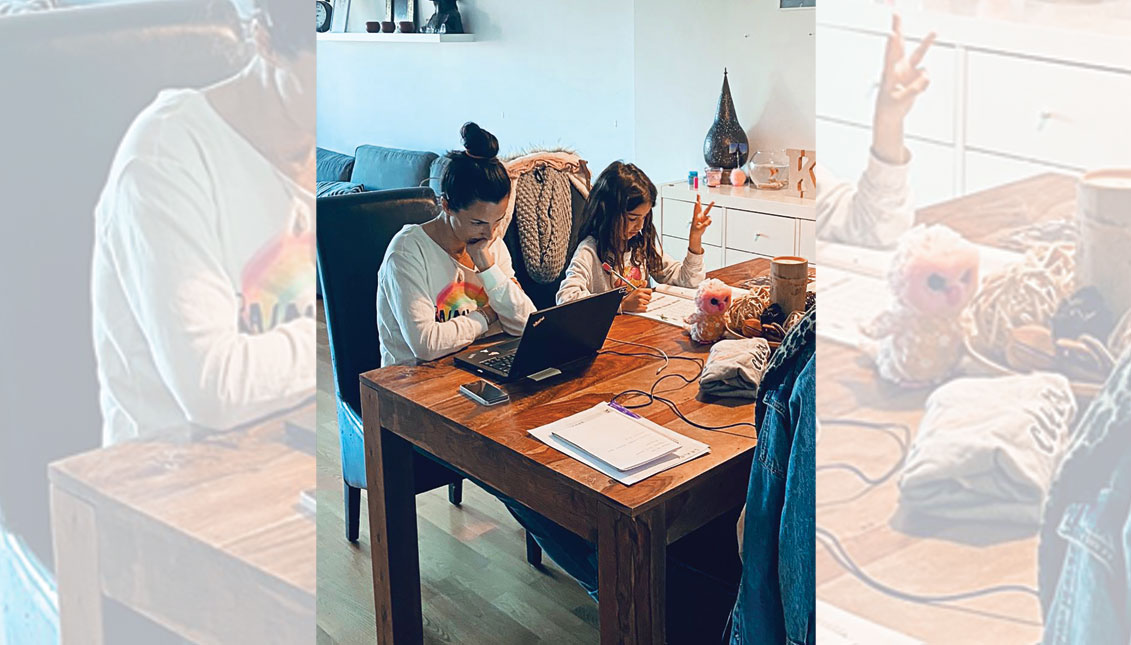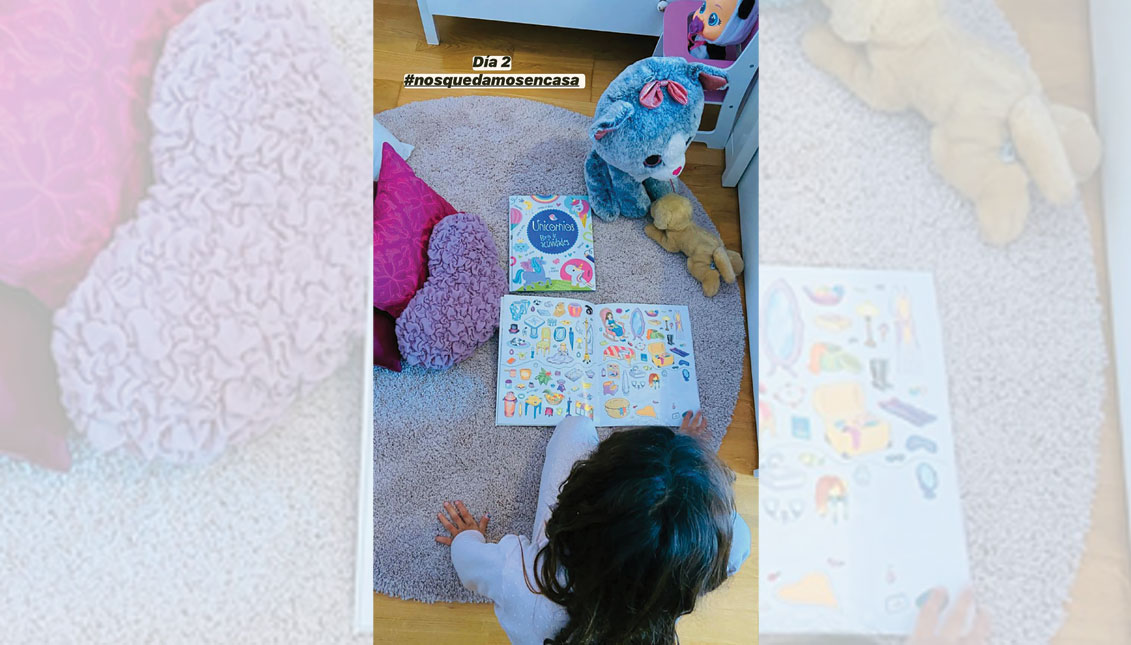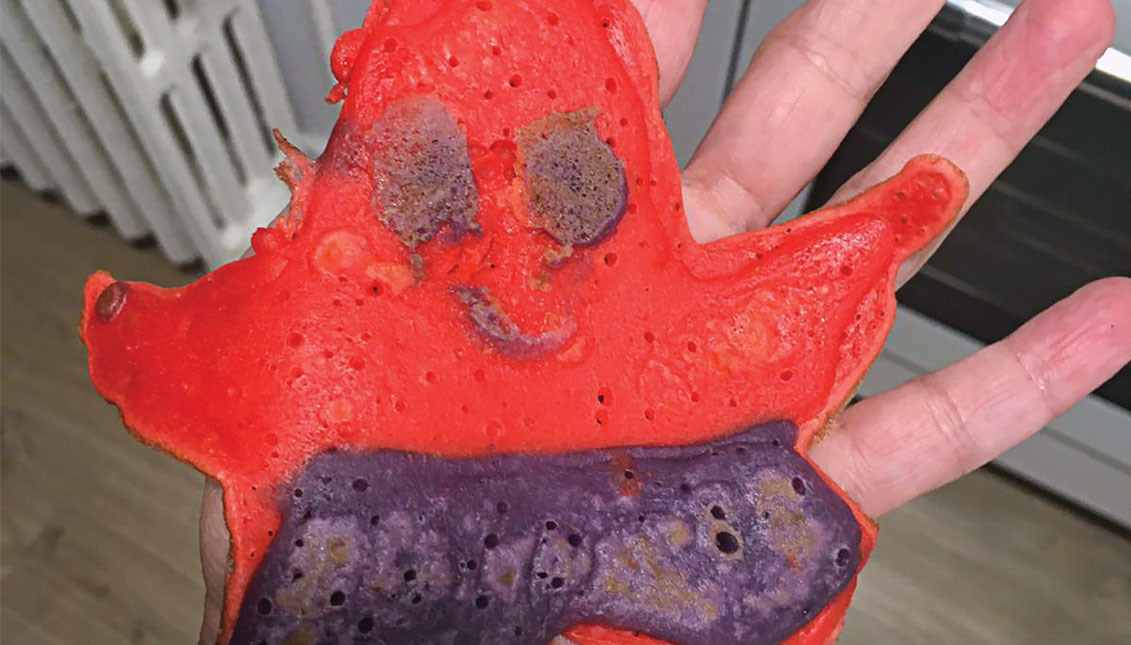
Education and Resilience: What we can learn from Spanish mothers in confinement
The confinement of Spanish mothers offers a perspective of what we could start living in the United States.
Since the declaration of the quarantine in the United States due to the state of emergency –first in San Francisco, and later in other cities– entire families have found themselves in the atypical and stressful situation of being confined with their children in the house without a definite date for the return to normal.
It’s a situation no one was prepared for.
In a society where time is money –and money is scarce– we suddenly have all the time in the world, and living together can become a torment or a gift, depending on how we decide to look at it.
In Europe, the epicenter of the pandemic –at least to this day– Spanish mothers are a bit ahead of us.
The quarantine was declared much earlier, with no more information beyond what was happening in Italy –and not knowing much about how domestic life was constrained China– they had to form a new family philosophy of confinement and face, together with their children, issues that had been alien before.
From talking to them for the first time, in many cases, about death and illness – especially that of a relative– to explaining the confinement and, above all, inventing another way of being and staying locked up together for 24 hours within four walls.
Beatriz, an Andalusian executive and a separated mother of two children aged 11 and 13, remembers having to run away just as the country declared a quarantine on March 14. "My children were with my ex-husband, who had fallen ill with the coronavirus and had a high fever, so I had to go and pick them up. Having food was the first thing I thought of, because the children eat at school, but I was reluctant to go into the loop of razing the supermarket. Then I got sick, and what we decided was to do an information block, both parents with asthma and a lot of coughing," she said.
Luckily, the school her children — Eugenia and Arturo — attend took care of guiding the parents and releasing appropriate daily statuses for children that explained the situation. They also have remote classes –something that doesn't happen in all schools– which helped them do something Beatriz believes is important: establish routines and organize time.
"Confinement doesn't mean a vacation, nor does it mean the kids go wild. It's important that parents don't let their guard down," Estefania.
Estefania, the mother of a six-year-old girl and a former teacher, agrees:
"We decided to make a schedule to facilitate coexistence because in my company we telework. So we were building it together, as a family, adding a time for her to do her schoolwork, another to practice physical exercise, board games and also other more symbolic ones. My daughter is very aware that I work and she must respect that," she said.
"Confinement does not mean holidays, nor does it mean that the children go wild. It's important that parents don't let their guard down,” she added.

Marta, mother of a 13-year-old boy with a disability and a teacher of early childhood education, knows very well how difficult it is for many parents to fill their children's playtime, especially when they are small, need to go outdoors, and when total coexistence with them is not something they’re are used to.
"With José Miguel I do gymnastics and play Lego when he finishes his homework, but the younger children, 1 or 2 years old, are another story. They don't know why they are confined and are more disoriented. So once a week I send them videos with songs we sing in the nursery and also games and psycho-motor exercises for their parents to do with them," she said.
"The most important thing is for parents to be patient. It's okay if they miss a few months of school in a lifetime. And, above all, that there is affection, that the children are happy and that the parents change their game if they see them very irritated.”
Karol is a single mother with an eight-year-old daughter. Her job took her on weekly trips, but one Friday, she was temporarily laid off at her company, so these days of confinement are being used to strengthen the bond they already have.
"The most problematic thing is that the mothers and fathers have to act as teachers, but my kid came from school very much knowing all about the coronavirus –the cousin of the flu and the cold– and she is very aware that she cannot go out and see her grandparents. A beautiful part is discovering parts you didn't know about your children and this time that life has given us," she said.
Estefanía agrees. The confinement has helped her and daughter get to know each other better and better in extreme situations. They talk a lot during meals, take stock of the day and in times when they become nervous.
"We are always demanding time and now that we have it, it's funny how people get overwhelmed. There is a great lack of affection in the family and relationships in the families and it is an opportunity to tell stories without rushing, to let the children get bored too because that awakens creativity", she assured.
RELATED CONTENT
"I made my daughter go down to the supermarket, I wanted her to have the experience of queuing with people in masks", Beatriz
Beatriz, for her part, has learned to celebrate everything. Each day, she lists every fun thing she does with her children, including eating while watching TV or toasting their glasses in the morning.
She also confronts them with the truth of what is happening in the world. She wants them to know they are part of a historical moment and for them to learn from the experience.
"I took my 13-year-old daughter down to the supermarket with a safety mask and all the caution in the world to go buy the ingredients for a recipe. I wanted her to have the experience of standing in line with other people wearing masks and gloves and she came back very shocked," she said.
She also doesn't hide the sad truth about this pandemic from them. When her children ask: "Are we all going to die?", "What if we run out of food?" she’s able to reassure them, but speaks from the sincerity that what is happening is a serious problem.
Life, on the other hand, did the rest.

All these families have suffered from the disease and the loss of a loved one. How they shared the news with their child of what happened –for some, their closest experience with death– was simpler than they imagined, but not without pain.
"We have several family members in serious condition in the hospital, and some of them have already died. I had to explain to my children that their uncle had died and that his wife of 70 years was home alone, isolated, and had to be called every day. Their reaction surprised me: they behaved like two adults, very affectionate with her. Although they do not understand well why younger people are being given medical treatment and instead it is not the same with the older ones. That's difficult," confessed Beatriz.
Macarena's case is quite particular. She has been confined longer than the others because her children's school had an infected child very early on. They are "exhausted.”
"There is a great lack of affection in the family and its relationships. It is an opportunity to tell stories without rushing," Estefania.
"This confinement has left us with a very bitter taste; one of my uncles died of coronavirus and I have no idea how difficult it is to die alone, without anyone holding your hand or being able to give you a burial yet. His wife is home alone, so we have video conferences with her, and the kids know it from the beginning. In life, it is important that they know things, that they treat them with respect and take away their fear as much as possible," stressed Macarena, who tries to bring something positive out of every situation, even the toughest ones.
"Fifteen years ago I got over cancer and that day I told myself that you have to be strong and positive. We have our days, many hours here, and tending to the house is quite uneventful; but the positive side is that we are together and that we have a lot of respect for humanity.”
Cooking as a family, playing board games, exercising together and even allowing yourself to be bored. Faced with an extreme and anomalous situation like the one we are experiencing, the four walls of a house can become a prison or a unique moment to enjoy others. These are times of revelation.











LEAVE A COMMENT:
Join the discussion! Leave a comment.